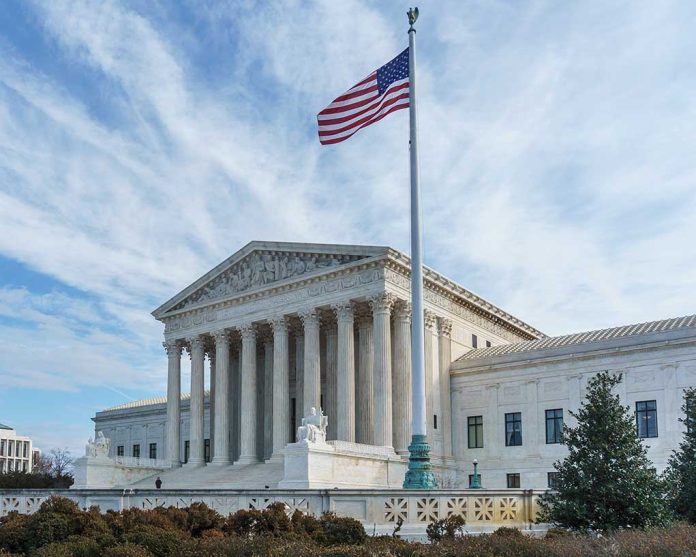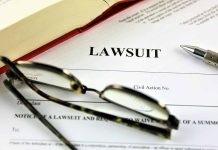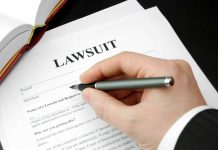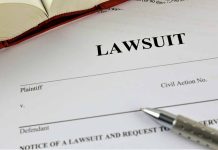
The U.S. Supreme Court is considering cases involving Facebook and Nvidia that could reshape the landscape of securities fraud litigation and corporate accountability.
At a Glance
- The Supreme Court is hearing Facebook and Nvidia appeals against securities fraud lawsuits.
- The cases involve the alleged misleading of investors about data breaches and cryptocurrency-related sales.
- These rulings could impact private securities litigation and corporate disclosure practices.
- Decisions are expected in 2025, with potential far-reaching consequences for investors and companies.
Supreme Court to Weigh in on Corporate Accountability
The U.S. Supreme Court is considering two significant cases involving tech giants Facebook (Meta) and Nvidia, which could have profound implications for securities fraud litigation and corporate accountability. These cases arrive at a time when recent Supreme Court rulings have already weakened federal regulators, potentially affecting the power of private plaintiffs to enforce federal rules against corporate misconduct.
Facebook’s case, which had a hearing scheduled for November 6, centers on allegations that the company misled investors by not disclosing a 2015 data breach involving Cambridge Analytica, which affected over 30 million users. Nvidia’s case, set for November 13, revolves around accusations of misleading investors about the extent of its sales related to the cryptocurrency industry, impacting investor understanding of its revenue growth.
Facebook, Nvidia ask US Supreme Court to spare them from securities fraud suits https://t.co/HhKDPD2BZ6 pic.twitter.com/DwjJ6KEcmw
— Reuters (@Reuters) November 4, 2024
High Stakes for Investors and Corporations
Both Facebook and Nvidia argue that the plaintiffs have not met the legal standards required for securities fraud suits. They contend that allowing these lawsuits to proceed could lead to an increase in speculative claims by shareholders. The companies’ stance has found “a receptive audience” in the Supreme Court, according to Andrew Feller, a former SEC lawyer.
“I think business interests will continue their recent pattern of aggressively challenging rules intended to hold them accountable, including by challenging the remaining private rights of action,” said Feller.
The outcome of these cases could significantly influence the future of private securities litigation, especially in light of recent rulings that have limited the authority of federal regulators like the SEC. Private rights of action are seen as “a necessary supplement” to public enforcement, given the SEC’s limited resources, according to Michael Perino, a securities law expert.
Potential Implications for Corporate Disclosure
The Supreme Court’s decision to hear these cases could impact how companies disclose risks and financial information to investors. Facebook argues that requiring disclosure of every past incident would create excessive liability and that the Cambridge Analytica breach was not immediately harmful to its business. However, investors claim Facebook misled them by not disclosing the breach as a material risk, a view the 9th Circuit Court agreed with.
Nvidia, on the other hand, argues that the investors’ case relies on manufactured data and does not meet the requirements of the Private Securities Litigation Reform Act (PSLRA). Investors counter that their claims are supported by employee witnesses and third-party reports, not just expert opinion.
Consequences of the Rulings
The rulings, expected in 2025, will be closely monitored by public companies, investors, and the legal community. A decision in favor of Facebook or Nvidia could limit private securities litigation, which is seen as essential for defrauded investors to recover losses. This comes at a time when the Supreme Court has shown “a recent track record of handing down business-friendly decisions that narrowed the authority of federal regulators,” according to Feller.
As the Supreme Court prepares to hear these landmark cases, the future of corporate accountability and investor protection hangs in the balance. The decisions will likely have far-reaching consequences for how companies disclose information and how investors can seek recourse in cases of alleged fraud.
Sources
- Facebook, Nvidia ask US Supreme Court to spare them from securities fraud suits
- Facebook, Nvidia push SCOTUS to limit “nuisance” investor suits after scandals
- Supreme Court Reviews Facebook and Nvidia Appeals Against Securities Fraud Lawsuits

















